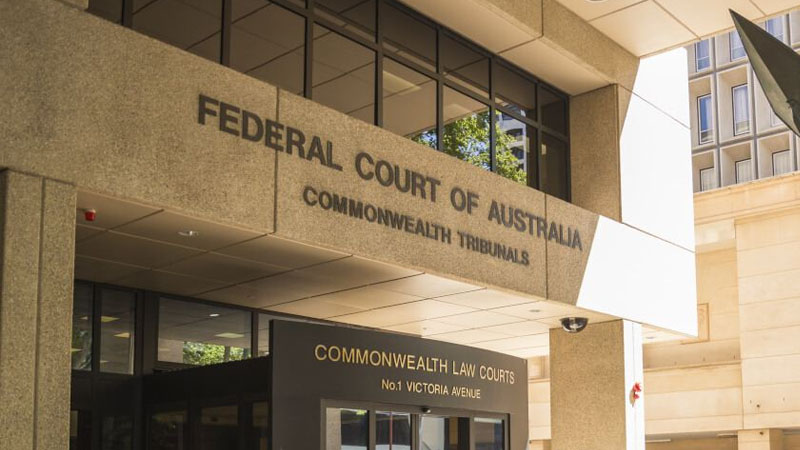ATO wins appeal over SMSF trustee disqualification
The ATO has successfully appealed an AAT decision that had overturned the Commissioner of Taxation’s disqualification of a trustee of an SMSF.
The Federal Court of Australia has rejected the Administrative Appeals Tribunal’s decision to set aside the disqualification of Giuseppe Coronica as an SMSF trustee.
The AAT had previously affirmed a non-compliance notice given to the SMSF for multiple breaches of the SIS Act but set aside the ATO’s decision to disqualify the trustee under s126A of the SIS Act.
The AAT accepted that the contraventions were serious but determined that “appropriate enforceable undertakings” by the trustee would address any future compliance risk.
In allowing the ATO’s appeal, the Federal Court found the AAT failed to consider the statutory question posed by s 126A(1)(b), namely whether the tribunal was satisfied that the nature, number and/or seriousness of the contraventions provided grounds for disqualifying Mr Coronica.
It also failed to consider the statutory question posed by s 126A(3), whether the tribunal was satisfied that Mr Coronica was a fit and proper person to be a trustee; and failed to ask the right question in the exercise of its discretion.
The court said an analysis of the reasons from the AAT to not disqualify Mr Coronica shows that no consideration was given by the tribunal as to whether it should form the states of mind which were preconditions for the exercise of power under s 126A.
It was apparent that the AAT approached the question as to whether or not to affirm the disqualification decision by reference to a consideration of the various countervailing matters, which were considered by the tribunal to weigh upon whether disqualification was “appropriate”.
“It was submitted for Mr Coronica that if the court found that the tribunal did not form the requisite states of mind, the failure to reach those states of satisfaction before exercising the discretion not to disqualify Mr Coronica was immaterial, because compliance could not realistically have resulted in a different decision, as regardless of the tribunal’s state of satisfaction, the tribunal would have exercised the discretion not to disqualify Mr Coronica,” Justice Davies said.
“Thus, it was submitted, the failure did not amount to jurisdictional error. There is no substance in that submission. First, the criteria of which the tribunal had to be satisfied to enliven the exercise of its discretion under s 126A (standing in the shoes of the Commissioner) were patently relevant to the discretion.
“Those matters were factors that bore in favour of disqualification and thus bore upon the exercise of discretion. The tribunal could not exercise that discretion without evaluating those matters, which could be decisive, against the other matters which the tribunal took into account; and by disregarding the matters which the tribunal was statutorily obliged to consider, the tribunal did not address the correct statutory questions in the exercise of its discretion.
“Secondly, in view of the failure of the tribunal to perform its statutory task, there is at least the realistic possibility that the tribunal would have reached a different conclusion on whether a disqualification order should be made against Mr Coronica, if the preconditions to the exercise of power were met and those matters had been taken into account in the exercise of discretion.”
The Federal Court also ruled that the tribunal fell into error by characterising the financial consequences for the SMSF becoming a non-complying fund as a monetary impost in the nature of a penalty on Mr Coronica.
“That characterisation is wrong. The financial consequences followed from the consequence of the decision to make the fund non‑compliant, which resulted in the fund being ineligible for concessional tax treatment,” Justice Davies said.
“That consequence is a separate and independent sanction under the SIS Act. The scheme of the SIS Act contemplates that multiple sanctions may be both appropriate, and the sanction of a disqualification order is different from the sanction of giving a fund a notice of non-compliance.
The court noted that the sanction of a disqualification order causes the person against whom it is made to forfeit the office of trustee and forbids that person from acting as a trustee of a superannuation fund. This consequence is inflicted on the person because that person is not a fit and proper person to act as trustee.
“The tribunal, by focussing on the resultant financial consequences from the change of status of the fund, did not give appropriate consideration to the question of whether Mr Coronica is a fit and proper person to continue to act as a trustee and thereby misdirected itself about the factors relevant to, and bearing upon, whether to impose the sanction of disqualification on Mr Coronica,” Justice Davies explained.

Tony Zhang
Tony Zhang is a journalist at Accountants Daily, which is the leading source of news, strategy and educational content for professionals working in the accounting sector.
Since joining the Momentum Media team in 2020, Tony has written for a range of its publications including Lawyers Weekly, Adviser Innovation, ifa and SMSF Adviser. He has been full-time on Accountants Daily since September 2021.


